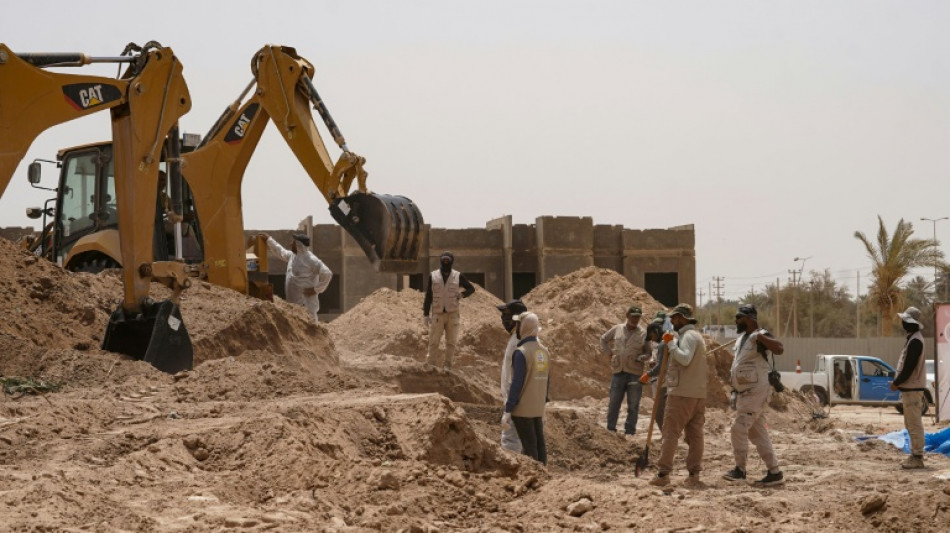
-
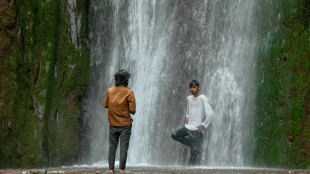 India-Pakistan tensions hit tourism in Kashmiri valley
India-Pakistan tensions hit tourism in Kashmiri valley
-
Bangladesh Islamists rally in show of force
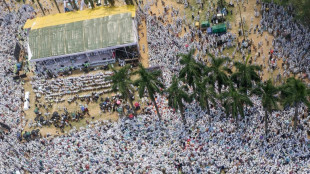
-
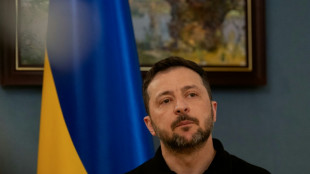 Zelensky says won't play Putin's 'games' with short truce
Zelensky says won't play Putin's 'games' with short truce
-
Cardinals meet ahead of papal election
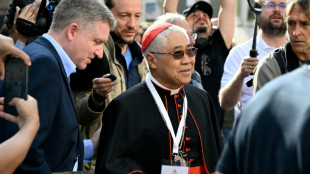
-
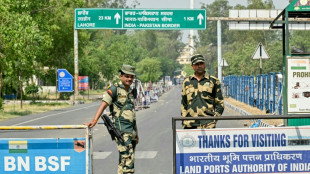 Pakistan tests missile weapons system amid India standoff
Pakistan tests missile weapons system amid India standoff
-
France charges 21 prison attack suspects
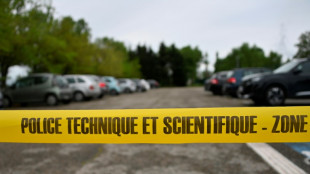
-
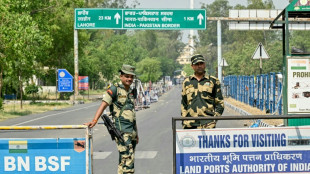 Pakistan military says conducts training launch of missile
Pakistan military says conducts training launch of missile
-
Lives on hold in India's border villages with Pakistan
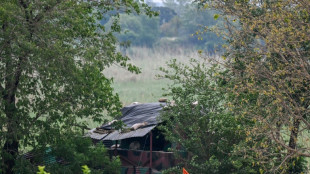
-
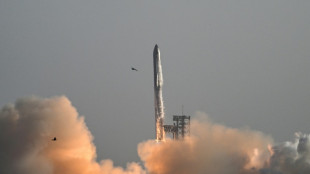 Musk's dreams for Starbase city in Texas hang on vote
Musk's dreams for Starbase city in Texas hang on vote
-
Rockets down Warriors to stay alive in NBA playoffs

-
 Garcia beaten by Romero in return from doping ban
Garcia beaten by Romero in return from doping ban
-
Inflation, hotel prices curtail Japanese 'Golden Week' travels

-
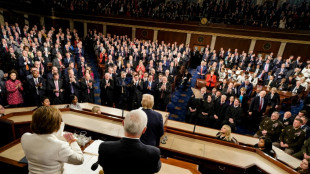 Trump's next 100 days: Now comes the hard part
Trump's next 100 days: Now comes the hard part
-
Mexican mega-port confronts Trump's tariff storm
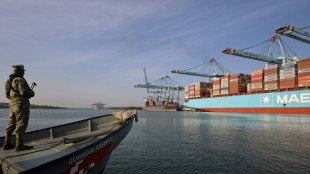
-
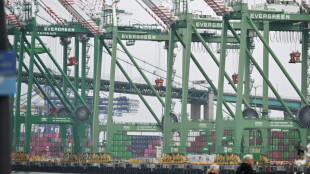 Trump's tariffs bite at quiet US ports
Trump's tariffs bite at quiet US ports
-
Ryu stretches lead at LPGA Black Desert Championship
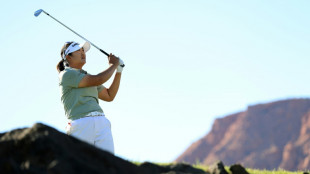
-
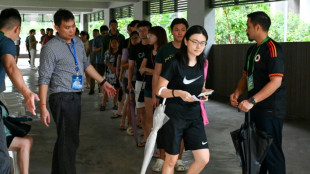 Singapore votes with new PM seeking strong mandate amid tariff turmoil
Singapore votes with new PM seeking strong mandate amid tariff turmoil
-
Five things to know about the Australian election
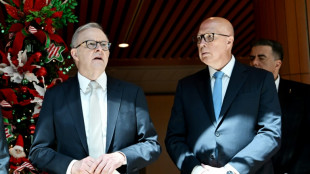
-
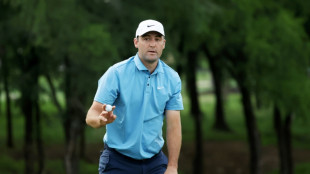 Scheffler fires 63 despite long delay to lead CJ Cup Byron Nelson
Scheffler fires 63 despite long delay to lead CJ Cup Byron Nelson
-
GISEC Global 2025: Dubai Mobilises Global Cyber Defence Leaders to Combat AI-Driven Cybercrime and Ransomware

-
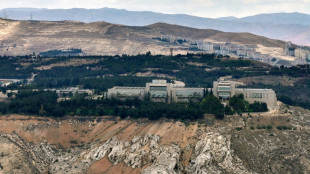 Israel launches new Syria strikes amid Druze tensions
Israel launches new Syria strikes amid Druze tensions
-
Finke grabs 400m medley victory over world record-holder Marchand
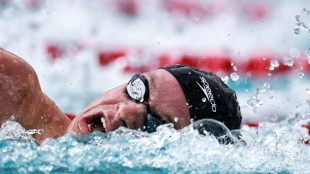
-
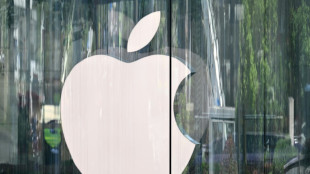 Apple eases App Store rules under court pressure
Apple eases App Store rules under court pressure
-
Polls open in Australian vote swayed by inflation, Trump
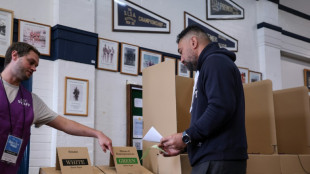
-
 Russell clocks second fastest 100m hurdles in history at Miami meeting
Russell clocks second fastest 100m hurdles in history at Miami meeting
-
Germany move against far-right AfD sets off US quarrel

-
 Billionaire-owned Paris FC win promotion and prepare to take on PSG
Billionaire-owned Paris FC win promotion and prepare to take on PSG
-
Teenager Antonelli grabs pole for Miami sprint race

-
 Man City climb to third as De Bruyne sinks Wolves
Man City climb to third as De Bruyne sinks Wolves
-
Mercedes' Wolff backs Hamilton to come good with Ferrari

-
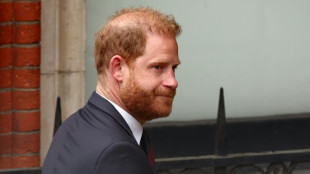 'Devastated' Prince Harry says no UK return but seeks reconciliation
'Devastated' Prince Harry says no UK return but seeks reconciliation
-
Elway agent death likely accidental: report

-
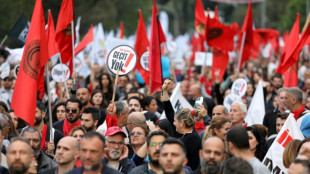 Turkish Cypriots protest new rule allowing hijab in school
Turkish Cypriots protest new rule allowing hijab in school
-
Germany's AfD dealt blow with right-wing extremist label

-
 Trump NASA budget prioritizes Moon, Mars missions over research
Trump NASA budget prioritizes Moon, Mars missions over research
-
Hard-right romps through UK polls slapping aside main parties
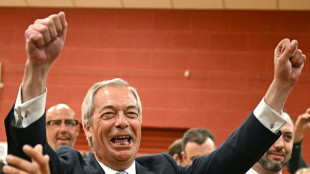
-
 Rangers hire two-time NHL champion Sullivan as coach
Rangers hire two-time NHL champion Sullivan as coach
-
Haaland on bench for Man City as striker returns ahead of schedule
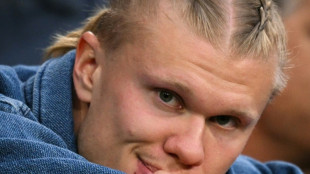
-
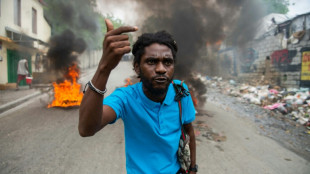 US designates two Haitian gangs as terror groups
US designates two Haitian gangs as terror groups
-
Lower profits at US oil giants amid fall in crude prices

-
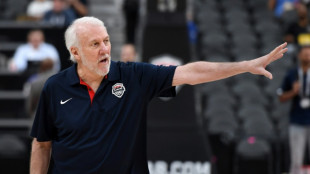 NBA icon Popovich stepping down as Spurs coach after 29 seasons
NBA icon Popovich stepping down as Spurs coach after 29 seasons
-
'Devastated' Prince Harry says no return to UK but seeks royal reconciliation
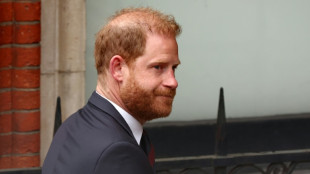
-
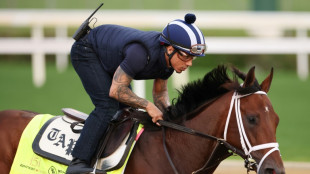 Grande scratched from Kentucky Derby
Grande scratched from Kentucky Derby
-
Carney vows to transform Canada economy to withstand Trump
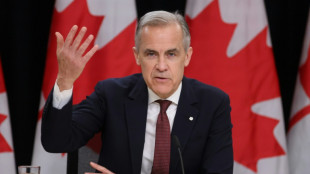
-
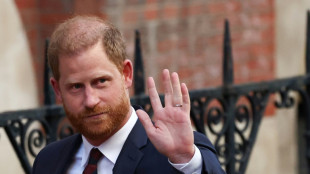 Prince Harry says he would 'love' to reconcile with family
Prince Harry says he would 'love' to reconcile with family
-
Major offshore quake causes tsunami scare in Chile, Argentina
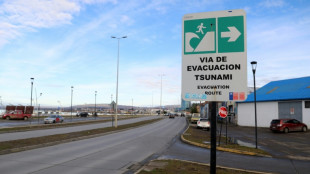
-
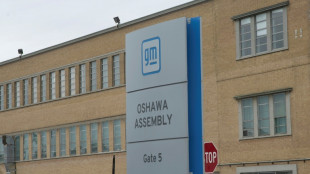 GM cuts shift at Canada plant over 'evolving trade environment'
GM cuts shift at Canada plant over 'evolving trade environment'
-
F1 extends deal to keep Miami GP until 2041

-
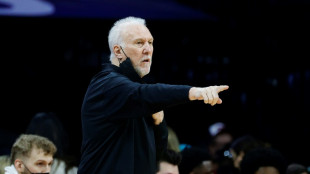 Popovich mixed toughness and spirit to make NBA history
Popovich mixed toughness and spirit to make NBA history
-
US asks judge to break up Google's ad tech business


From Saddam to IS: Iraq still exhuming mass graves
A noisy backhoe digs up earth to uncover yet another mass grave in Iraq, human remains are exhumed and the forensics experts get to work on their grim task.
A skull is freed from a layer of clay, a tibia is placed in a body bag -- all bound for a laboratory to be genetically checked against blood samples from relatives of the disappeared.
The site near the central shrine city of Najaf is one of many in a country that suffered through more than four decades of bloody conflict and turmoil.
Dictator Saddam Hussein went to war with Iran from 1980 to 1988. Next came the 1991 Gulf war over Kuwait, then the 2003 US-led invasion, years of sectarian bloodletting and most recently the Islamic State group's reign of terror until 2017.
The years of violence have made Iraq one of the countries with the highest number of missing persons in the world, says the International Committee of the Red Cross.
In Najaf, work began in May to dig up a 1,500-square-metre (1,800-square-yard) plot to exhume the bones of around 100 victims of a 1991 uprising against Saddam.
The mass grave was discovered by chance when property developers wanted to prepare the land for construction.
- 'We waited, he never came' -
Intissar Mohammed was summoned to provide a drop of her blood as a sample because the authorities suspect her brother's remains could be found in the mass grave.
Hamid disappeared in 1980 under Saddam's iron-fisted regime.
At the time, Intissar and the rest of the family had moved to neighbouring Syria but Hamid had stayed in Iraq for his studies, planning to join his family later.
"We waited for him, but he never came," recalled a tearful Intissar. The young man was reportedly kidnapped, she said, "and we never heard from him again".
Intissar, who returned to Iraq in 2011, remains hopeful that she will find out more.
Her DNA will be "compared with the bones found in situ", said Wissam Radi, a technician at the forensic medicine department in Najaf.
The identification process takes time and wears down the patience of relatives, who often complain that they feel abandoned.
Opening a mass grave is a mammoth task and "the biggest obstacles are financial", said Dergham Kamel of the Martyrs' Foundation, a state body in charge of managing mass graves.
He said another government institution, the Directorate for the Protection of Mass Graves, had received "no funding from the government" between 2016 and 2021.
The centralisation of the Iraqi system is another hurdle as genetic comparisons are conducted exclusively in the capital Baghdad.
In the former IS bastion Mosul and elsewhere in northern Iraq, forensic scientists are making slow progress in analysing the 200 or so mass graves left behind by the jihadists.
- 'May God have mercy' -
Hassan al-Anazi, director of forensic medicine in the north's Nineveh province, has asked for the missing person database to include all the region's IS victims, but so far to no avail.
"There are thousands of missing people," he said. "Every day, about 30 families come to us to ask for news of their loved ones."
However, he said, "due to a lack of political will" the Khasfa mass grave in Mosul, one of the largest, has still not been opened.
It contains the remains of officers, doctors and academics killed by the IS, with a total of around 4,000 victims.
Bereaved Mosul mother Umm Ahmed is seeking information about the fate of her sons, police officers Ahmed and Faris, who were abducted by the IS when it took over the city.
"I knocked on every door," she said. "I even went to Baghdad. But I got no answer."
The lack of information also raises a financial issue. Until the remains of a missing person have been identified, relatives receive no compensation from the Iraqi state.
In many cases, the fathers, sons and brothers killed by the IS were breadwinners.
To help the families, Dalia al-Mamari has created The Human Line association in Mosul, which advises on the compensation process.
"The government is very slow," she said. "Often all they tell us is: 'Your children are dead, may God have mercy on them'."
A.Rodriguezv--AMWN